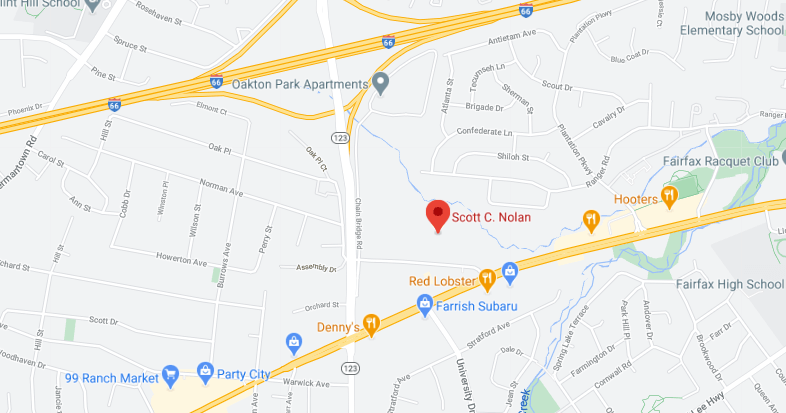There is a lot of controversy regarding the fairness and accuracy of results obtained through the application of field sobriety tests by law enforcement in situations where a driver is suspected of being under the influence of drugs or alcohol. But are field sobriety tests part of Virginia’s implied consent laws, and if so, are you obliged to take one? Our attorneys explain why you may be able to refuse a field sobriety test without having your refusal used against you and what you should do to protect your constitutional rights.
What Is a Field Sobriety Test?
A field sobriety test is a type of test used by police officers in order to determine whether or not an individual is impaired by drugs or alcohol. It typically involves a series of physical and mental tests that can be used to evaluate various aspects, such as a person’s balance, coordination, and ability to follow instructions.
Field sobriety tests are often administered roadside during a traffic stop and can include walking in a straight line, standing on one foot, and other activities that allow the officer to observe a person’s behavior and look for signs of intoxication. The tests are typically given in a standardized fashion, and results may then be used as evidence by the officer to make an arrest or issue a citation.
What Are the Three Most Common Types of Field Sobriety Tests?
Some of the most common types of field sobriety tests used by law enforcement officers include the Horizontal Gaze Nystagmus (HGN) test, the walk-and-turn test, and the one-leg stand. The Horizontal Gaze Nystagmus (HGN) test is meant to allow for the detection of the involuntary jerking of an individual’s eyeball – a condition referred to as nystagmus, which is usually caused by the consumption of alcohol. The officer will ask the individual to follow a moving object, such as a pen or flashlight, with their eyes without moving their head.
The Walk-and-Turn test is a divided attention test that tests an individual’s ability to listen to and follow instructions, as well as their ability to maintain balance. During this test, the officer will usually ask the individual to walk heel to toe in a straight line for a certain number of steps and then turn and walk back in the same manner.
The One-Leg Stand test is another divided attention test that tests an individual’s ability to balance on one leg while counting out loud. The officer will ask the individual to stand with one foot raised off the ground and count until the officer tells them to stop. Other tests include skip-counting out loud (such as counting by the thousands) or reciting the alphabet from Z to A without singing.
Are Field Sobriety Test Results Reliable?
Field sobriety tests are often unreliable for a variety of reasons. First, field sobriety tests are highly subjective and open to interpretation by the officer administering the test. The officer’s perception of a person’s performance can be influenced by a number of factors, such as the person’s age, weight, physical fitness, or medical condition – all of which can interfere with a fair assessment of the results.
In addition, an individual’s performance can also be affected by a variety of other factors, such as fatigue, stress, or emotional state, which could lead to a false positive even if the person had not been drinking. For example, if a driver is simply tired and maybe feeling nervous after being pulled over and questioned by an officer, they may not perform as expected and may make mistakes that could be misinterpreted as signs of intoxication.
Field sobriety tests are typically performed outdoors in an uncontrolled environment, which can be affected by factors like weather, noise, and other distractions. It is not uncommon for field sobriety tests to be administered without the driver being properly instructed or informed of the consequences of failing the test. Another reason that makes field sobriety test results unreliable is that they are generally not designed to detect impairment by other substances, such as drugs, and are more geared towards assessing a person for signs of intoxication due to alcohol consumption.
Can You Refuse a Field Sobriety Test Without Penalty?
It goes without saying that the results of a field sobriety test will likely be used against the driver in order to establish probable cause for a DUI arrest. What many drivers may not know is that refusing any type of roadside test – including a breathalyzer and a field sobriety test – is not against the law and generally cannot be used against that driver as an admission of guilt.
Preliminary sobriety tests conducted before an arrest is made are not included in Virginia’s implied consent law, which means a driver can decline to submit to them without negative repercussions. In other words, if you are pulled over and asked to do a field sobriety test, you can politely but firmly decline to do so without losing your license or facing any criminal charges. Because these tests are optional, law enforcement may try to argue that your refusal is an admission of guilt, but such an argument would likely not hold up in court, especially if you have a skilled criminal defense attorney representing you.
The Law Office of Scott C. Nolan, PLLC, has assisted countless drivers charged with DUIs in Virginia to fight back and protect their rights. If you have questions, need legal help, or are facing DUI charges, contact The Law Office of Scott C. Nolan, PLLC, at 703-688-9236.











